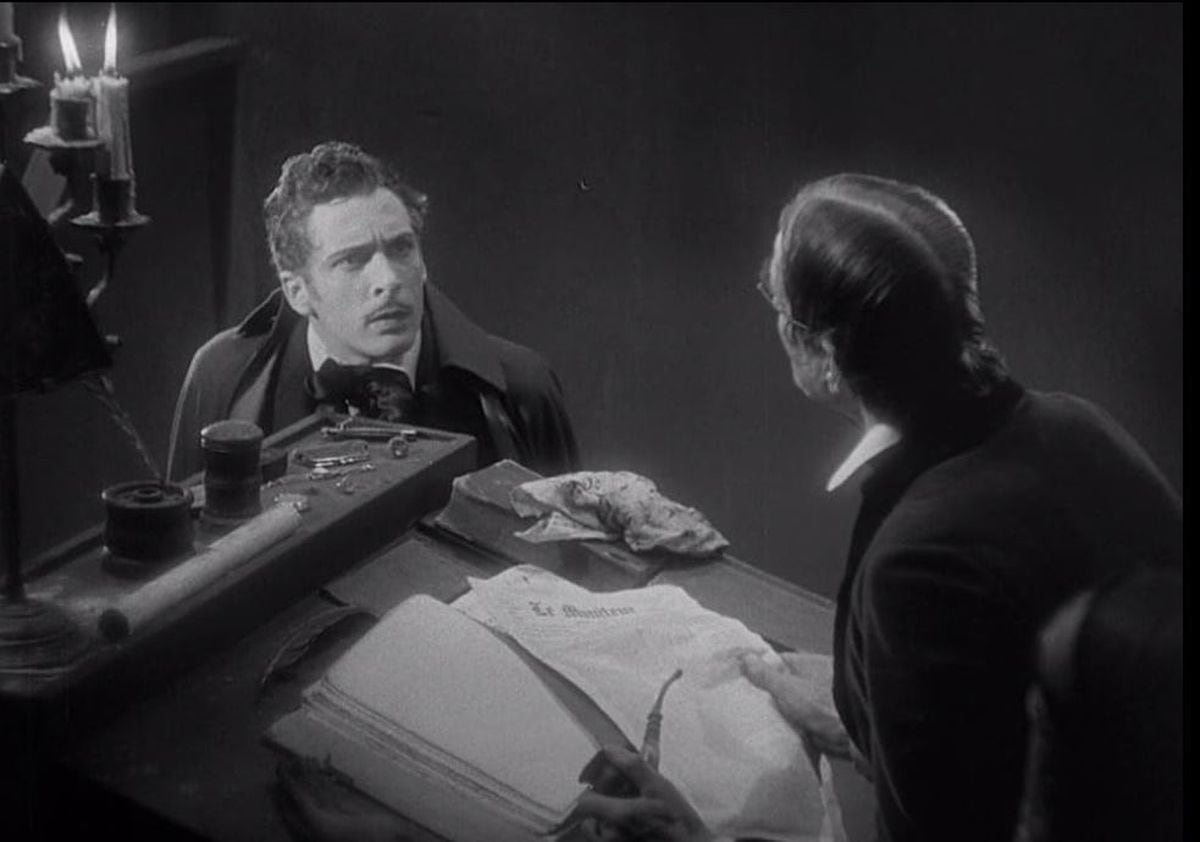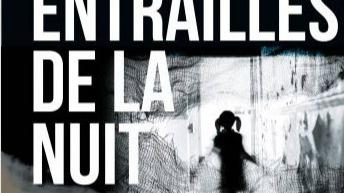There is a Mecca for every detective novel writer:
the Black Week in Gijón
, a Spanish festival that has recognized
great teachers such as Juan Sasturain, Claudia Piñeiro and Leonardo Oyola with the
Dashiell Hammett award.
In 2022, the Olympus of the criminal genre made room for a young and very particular voice in Argentine literature:
Nicolás Ferraro
(36).
Owner of
a pen as acid as his humor
, Ferraro –born shortly before Maradona lifted the world cup– belongs to a generation that comes to writing not necessarily through books.
Hardly anyone in his environment read, there weren't too many books in his house, but Nico had a PC with which he spent hours “correcting”
.
Computer games were the trigger for one of the best current black genre storytellers.
This is how it all began: a boy faced with an unfinished game and the need to narrate what was missing
.
Later, yes, that voracious process of reading and exploration: Nicolás looking in the bookstores and in the parks of Buenos Aires for all the titles that refer him to the crime and crime genre.
"One begins to write for real thanks to failures," he says now in front of a cup of coffee with the same seriousness and ease with which he is capable of affirming that a hamburger will probably change your life more than a book.
Author of
Dogo
(2016),
Cruz
(2017),
El cielo que nos queda
(2019) and Ámbar (2021), most of them also published in
Mexico, France, Italy and the United States
,
Nicolás Ferraro is more than a genre writer, he is also a scholar: in 2015, led by Damián Vives, he started working at the National Library, where he is in charge of the Police Narrative Center.
There he manages projects that help promote genre literature: the exhibition Rostros del Crimen, by Alejandro Meter, is an example.
Ferraro published four novels in just five years.
Photo: Constanza Niscovolos.
One, when he starts writing, is like a magpie: you steal this and that from each author you read.
Nicholas Ferraro
a different way
-If you had to think about how your relationship with literature started, what moment comes to mind to build that founding myth that every writer has?
-Everything starts from the hand of video games.
When I was little, I played
Prince of Persia
and then I began to draw scenes from the game.
It also happened to me that I rented one and had to return it without knowing how the story would end because I didn't get to finish it, so I would draw to complete all that had not happened.
Around 2001
Max Payne
appeared , and I was very interested in how it was told: it mixed comics with voice-overs and that fascinated me.
I played it a thousand times.
At that time I was reading absolutely nothing.
Yes, some Argentine comics,
Skorpio
and
Fierro
magazines , but no novels.
But in that video game they name Philip Marlowe and Sam Spade
(the detectives created by Raymond Chandler and Dashiell Hammett).
I said, "I've got these from somewhere."
I went and bought
The Big Sleep
and
Red Harvest
.
From there I began to read and write.
-And how were those first steps with writing?
-One, when he begins to write, is like a magpie: you steal this and that from each author you read.
You try to be Chandler or Hammet.
We all want to copy someone when we start and that, obviously, is a failure.
One begins to write for real thanks to failures.
The first novel I started writing was very Chandlerian, even though it was set in Argentina.
It was left unfinished.
The second novel also ended in abandonment.
Another glitch.
And more failures.
Until at one point my head clicked and I realized that it was there... That's how I wrote a 400-page novel that I never published, but with which I reached a closing point.
Was someone around you a reader?
-My old man read some science fiction.
There is a big problem with the habit of reading.
When I went to school we read
Lazarillo de Tormes
and the
Poem of Mío Cid
, which are masterpieces without a doubt, but they don't appeal to a 15-year-old boy at all.
In addition,
reading always appeared as a punishment, they gave you a book to read as a penalty for something
.
Many people who don't read have the idea that reading is tedious.
You realize that when many friends who don't read buy your first novel to support you and then come and say: “Hey, what else can I read… Literature is not boring, it talks about what happens to us”.
That is one of the most beautiful things that happened to me when I published: people who didn't read discovered that literature was something else, that it amused them and that it could be playful.
Cover of Ámbar, Ferraro's novel that won the 2022 Dashiell Hammet award.
What I do has to do with the literature of despair and discomfort, both social and individual.
Nicholas Ferraro
The key: the workshops
-In all this first stage of writing, was it with some kind of guide?
-I went to Leo Oyola's workshop for many years and we wrote six novels there.
Leo is a very good motivator: he helped me to write, to trust the story.
He is not the type to get into your literature to build a Salieri de Oyola.
We usually touch on themes that are close to us –marginality, slang– but I was able to find my own path.
The workshop is one of the ways to start writing
, it's like a shortcut: if you don't go to a workshop, you can surely end up writing, with a lot of reading... But the workshop helps you fail faster and that speeds up getting you out of trouble. above the first pages of garbage that we all have to get rid of.
Do not despair of publishing the first thing that is written.
In my case, I wrote six novels before publishing any.
-Of those six, how many have already been published?
-Three...
-The others?
-They are there, luckily, in a drawer.
It seems to me that they are old.
-They no longer represent you as an author…
-And neither do they represent what society can or wants to buy now.
Above all because they have humorous things from another era that are no longer running today.
Nicolás Ferraro is one of the most prominent voices in the Argentine police novel.
Photo: Constanza Niscovolos.
- Are you worried as an author that there are certain social conditions when it comes to writing a novel?
-At the time of writing, I would say no, but in hindsight I see it: there are things that perhaps worked in a text a few years ago and not today.
The limit of humor is a subject... I believe that humor can be made with anything;
within a text, humor is therapeutic, especially in stories that are hard... Laughing in the middle of a dark text, which takes you to the middle of hell, is important so that the reader does not end up expelled from the book...
-That sometimes is also given by the poetics, by the tone of the story...
-Clear!
How horrible what you are telling me but how well narrated it is.
With an image, with a phrase... The use of language is the key.
I can tell you this now, after years of writing, but before the blank page I don't think about it.
-What are you thinking?
-I always start with the plot, with the story I want to tell.
I'm not interested in the theme… There isn't a theme… For me, the theme is a second story that appears if the first one works.
For example, in
Cruz
, my idea was to tell the story of a kid with a criminal father who is forced to follow the family legacy.
That's all I wanted to say.
Now, when I go back, I think that it is a novel that speaks not only about toxic masculinity but also about tragic masculinity.
About the place that we have as men in society, about how the family, the institutions, the cinema build us.
That macho image that doesn't even cry.
The only emotion that empowered us as boys was anger, being angry was fine...
Anger is actually a substitute emotion, it comes from something else...
So, the plot is the most important thing and then those concerns appear that are almost unconscious for the writer.
-How would you define the noir genre and where in that broad spectrum do you place your work?
-For me, what I do has to do with the literature of despair and discomfort... Both social and individual discomfort.
Before, the policeman was thought of as ordering chaos, a detective restoring the status quo.
I believe that now chaos is survived,
it is no longer possible to reset it.
Another thing that interests me is that the genre tells stories of morality put to the test: a guy who is forced to do something and all of his convictions are challenged, from head to toe.
There is something in that, too, of trying to trust humanity.
In all the stories I tell, I put characters in extreme situations that lead them to discover themselves.
I tell stories that are told in order to survive.
In this sense, memory is a fiction: what stories do we tell ourselves to make life bearable?
One looks for a refuge in the stories.
The noir genre is a Trojan horse, because above all the plot must be entertaining, but at the same time you are facing a lot of social concerns that serve to decode reality.
look also
Julián López and his new book: "It is a pop love novel"
The stripper who hid her life from her family and now reveals it in a novel








/cloudfront-eu-central-1.images.arcpublishing.com/prisa/AUHAGBOYIJAQBCRWX4R2PHALY4.jpg)